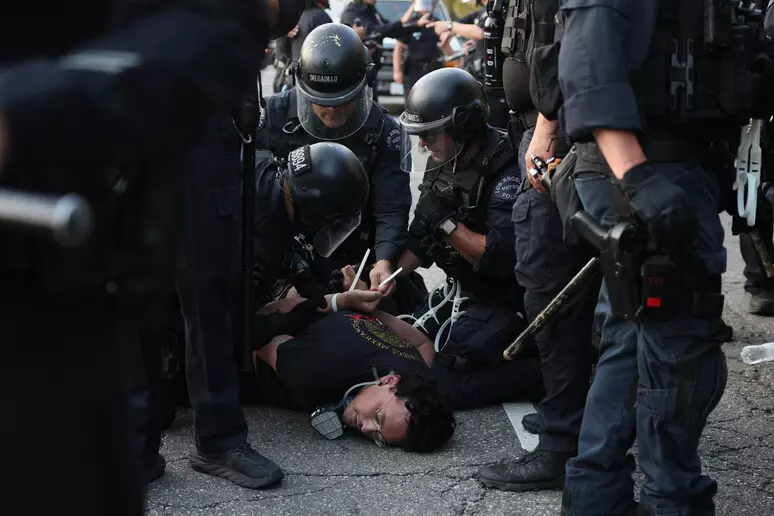In the United States, a detention system is quietly growing, breaking every record. Without much public attention, Immigration and Customs Enforcement ICE, has reached the figure of 59,000 migrants in custody– a reality that reflects the broader direction of the Republican administration’s immigration policy.
According to internal data obtained by CBS, ICE has exceeded 140 percent of the detention capacity authorized by Congress, which had allocated resources for 41.500 beds. This gap has been filled through temporary facilities and emergency solutions, even as arrest campaigns continue to intensify nationwide.
Statistics reveal that nearly half of those currently detained have no criminal record, and less than a third have been convicted of crimes, an indication that ICE has expanded its criteria for detention well beyond the Trump’s initial pledge to target only dangerous criminals for removal.
Administration officials have reiterated that no one present illegally on U.S. soil can consider themselves safe from deportation, a hardline stance that has driven ICE to increase arrests to an average of 1,200 per day in June, with peaks surpassing 2,000 on at least two occasions. This pace is nearly double what was recorded at the beginning of the President’s first term in office.
The increase in the detainee population has been driven primarily by arrests within the interior of the country, rather than by border crossings, which have dropped sharply. More than 70 percent of those in custody were apprehended far from the U.S.-Mexico border. Large-scale operations have sparked widespread protests, such as those in Los Angeles following workplace raids that have prompted the deployment of the National Guard.
Amid growing pressure, ICE has expanded enforcement efforts with the support of agencies like the FBI, DEA, and Customs and Border Protection, often taking individuals directly from local jails through pre-existing programs, disregarding previous policy guidelines.
Professor Austin Kocher of Syracuse University in New York has voiced concern over the consequences of this rapid escalation, warning that the agency may no longer be able to meet even the minimum standards of civil detention or ensure due process for migrants. He emphasized that these rights appear to be treated more as options than as legal obligations by the administration.
To support the wave of arrests, the government has also considered using military bases such as Fort Bliss in Texas and has requested emergency funding from Congress to expand detention capacity to 100,000 beds. Some local authorities, like those in Florida, have offered to build new detention centers including one in the Everglades, already nicknamed “Alligator Alcatraz” due to its remote location and harsh surrounding environment.












